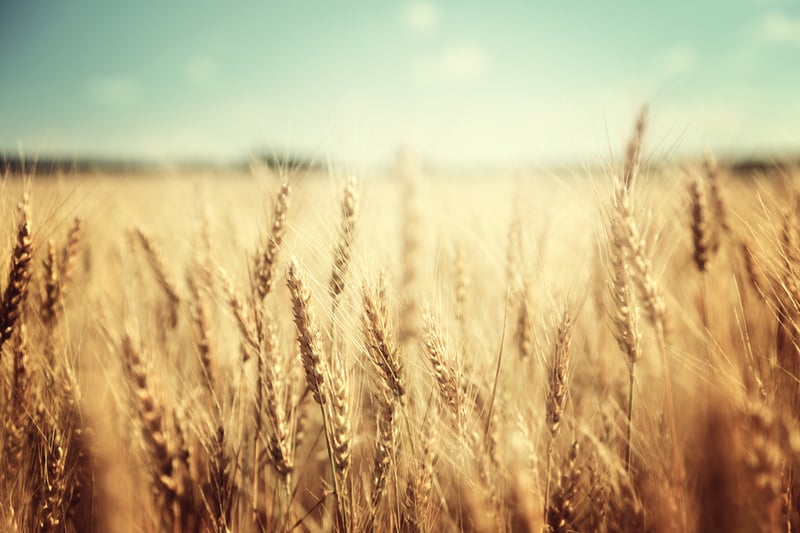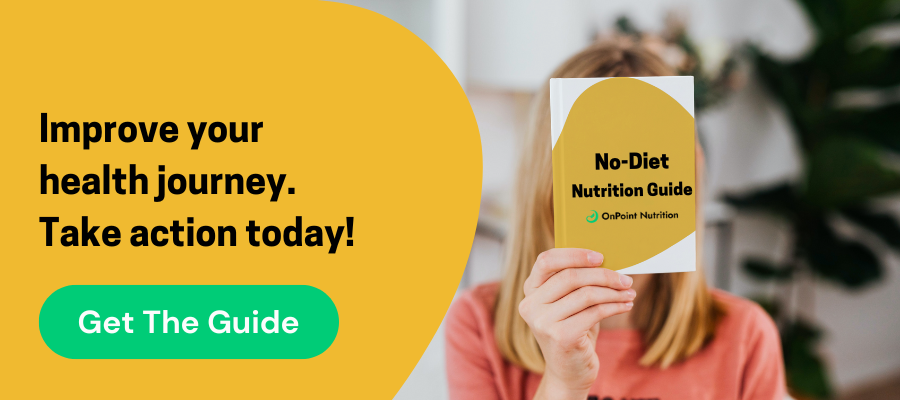
Gluten seems to be the latest polarizing word in the nutrition and weight loss world. Even Jimmy Kimmel has featured gluten in a recent late-night segment. However, not enough people know what it is, in what foods it exists, and what (if any) impacts it can have on your body and weight loss. We present the gluten debate from a nutrition perspective, and offer our perspective on how it gluten can affect weight loss.
What Is Gluten?
Gluten is a protein composite found in wheat and other grains, which gives many foods their nutritional value. From a baking perspective, gluten gives breads and related foods its elasticity and chewy texture. From a molecular perspective, it is the product of two storage proteins, gliadin and glutenin, conjoined with a starch molecule (a complex carbohydrate) organized into a sub-microscopic network within the bread product. In modern diets, gluten is extracted from flour in both small-batch restaurant food preparation and in large-scale food manufacturing. Industrial gluten production creates a similar flour-like substance that can be added to other products. In addition to its traditional use in bread products, gluten is also a used to produce imitation meats (beef, chicken), and is present in beer, some condiments (ketchup), and soy sauce.
Am I “Allergic” to Gluten?
A gluten “allergy” is called Celiac Disease, and it affects ~1% of individuals in the US and UK. Celiac is an auto-immune disease, in which the gluten protein activates a specific immune response to attack the villi, the tissue within the small intestine responsible for nutrient absorption. Celiac has more than 300 known symptoms, which makes it difficult to diagnose. Early health and nutrition issues may include abdominal bloating, gas, diarrhea and vomiting, migraine and joint pain. Long term health and nutrition impacts may include Type 1 Diabetes, osteoporosis, anemia, and even infertility. Celiac is hereditary, carrying a 10% chance of development if one parent has the disease.
Recent findings suggest that there is also a natural range of gluten sensitivity within normal populations. However, gluten sensitivity and Celiac are thought to work through different biological processes (symptoms of gluten sensitivity have been shown to result from a non-specific immune response). Those with gluten sensitivity do not experience small intestine damage or test positive for the antibody produced during a Celiac autoimmune response. Symptoms may include “foggy mind”, depression, abdominal pain, diarrhea, constipation, headaches, bone or joint pain, or fatigue. Recent research suggests that there may be an additional 18 million individuals who have some form of gluten sensitivity, which would represent only ~6% of the current U.S. population.
Currently, there is no direct medical test for gluten sensitivity. Diagnosis is performed through via exclusion. To be diagnosed with a gluten sensitivity, one must:
-
Test negative for Celiac using a blood test and endoscopic biopsy
-
Test negative for a wheat allergy via IgE assay
-
Positively demonstrate the symptoms mentioned above
What To Do If You Have Celiac or Are Gluten Sensitive
If you believe you may have Celiac or be gluten-sensitive, consult a medical professional. Only a doctor can perform the tests listed above to properly diagnose either condition. If you have modified your diet to be gluten-free, your doctor may recommend you temporarily return to eating foods containing gluten in order to confirm positive symptoms.
Presuming that you are medically diagnosed with either Celiac or a gluten sensitivity, the only known treatment is to adhere to a strict gluten-free diet. This is where our nutrition counselors can help. We recommend that you continue to eat a balanced diet, and initially your nutrition counselor will not tweak your macronutrient breakdown. However, you may be challenged to find proteins and starches that are gluten-free. From a nutrition perspective, a quick list of gluten-free high-protein foods include:
-
Unprocessed lean meat and poultry
-
Low-fat milk
-
Eggs
-
Beans
-
Plain nuts
Remember, any time you buy food with additional flavorings, you must check the nutrition label and ingredients for added gluten.
The following foods are starches that are also gluten-free:
-
Corn
-
Quinoa
-
Rice
-
Potatoes
-
Seeds
Gluten and Weight Loss
According to the Cleveland Clinic, there is no medical or academic evidence to suggest that a gluten-free diet, all other things equal, promotes weight loss. However, a nutritious gluten-free diet may result in you eating more unprocessed foods, including whole grains, fruits, vegetables, and lean meats. These choices are often more nutritionally rich, lower in calories, and higher in fiber. The end result is an improved diet, a more mindful approach to eating, and greater likelihood of weight loss.
Keep in mind that not all gluten-free foods are nutritious. Many cookies, cakes, and other sweet treats are gluten-free, but should not be part of your regular diet. Additionally, many gluten-free food varieties have more calories and higher sodium than their normal nutrition counterparts, and can work against your weight loss goals.
The Final Word
Your nutrition counselor’s goal is for you to build meals and habits that keep you full and provide you with enough energy to make it through the day. If you have regular abdominal boating, gas, diarrhea, you absolutely need to talk to your doctor about being tested for Celiac or wheat allergy. Even if you test negative for these allergies, through exclusion, your doctor may diagnose you with a gluten sensitivity. However, keep in mind that despite all the recent media coverage, only 7% of the population has Celiac or a gluten sensitivity.
Additionally, even if you do not have a gluten sensitivity, replacing processed foods (that may or may not contain gluten) with nutritious non-processed fruits, vegetables and lean meats will likely improve your energy levels and reduce bloating and water retention. You can achieve this result with both a gluten-free diet and a gluten-containing diet. This balanced diet, eaten in proper portions, can lead to successful weight loss.
For less than 10% of the population, going gluten-free is essential for healthy living. For the rest of us, building a nutritious and balanced diet of starches, protein, fruits, vegetables and dairy provides us with energy, helps us feel full throughout the day, and can promote you achieving healthy and sustainable weight loss.
Curious about how gluten relates to IBS? Our IBS Diet main page teaches you how to make simple dietary change to relieve your discomfort. Check it out!

Britney Kennedy is the founder and CEO of OnPoint Nutrition. Since opening in 2016, she and her team have helped over 2,500 individuals become happier, healthier more confident versions of themselves.




